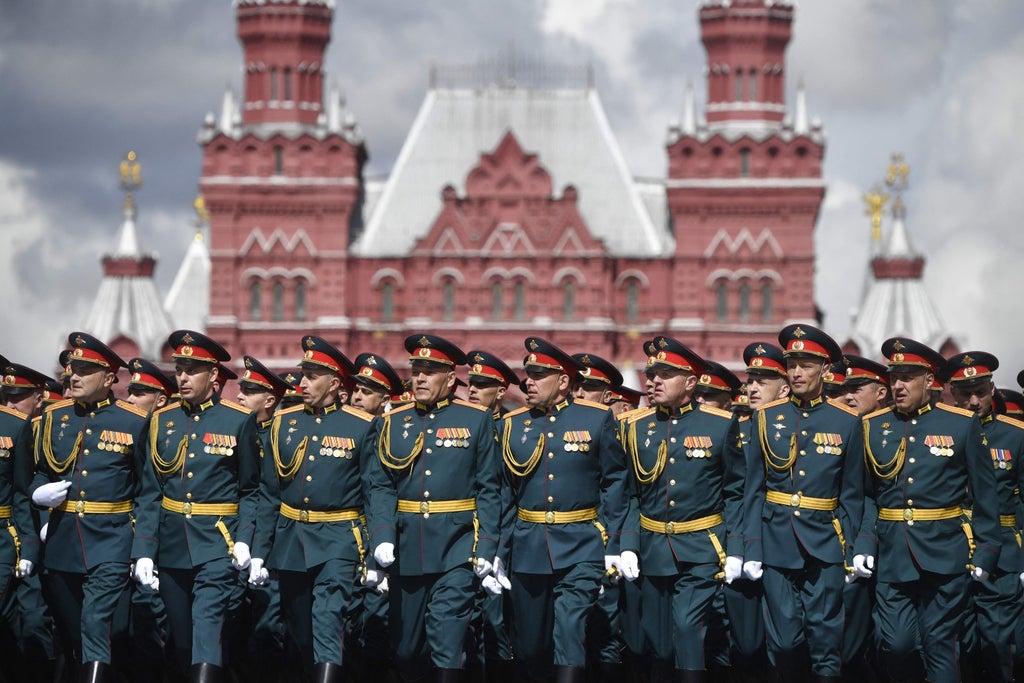
Two months into its vicious assault on Ukraine, Russia again finds itself at war. Marking the 77th anniversary of the triumph of the Soviet Union over Nazi Germany in 1945, Russian president Vladimir Putin has spurred his immense army towards victory in Ukraine.
“Defending the Motherland when its fate is being decided has always been sacred,” he told the annual Victory Day military parade in Moscow’s Red Square, flanked by stone-faced veterans and military officials.
Addressing directly the troops fighting in Ukraine’s eastern Donbas region, which Mr Putin has pledged to “liberate” from Kyiv, he said: “Today you are fighting for our people in Donbas, for the security of Russia, our homeland.”
Despite having been touted as a potential venue for Mr Putin to offer an update on Russia’s military operation in Ukraine, his 11-minute speech offered no such detail.
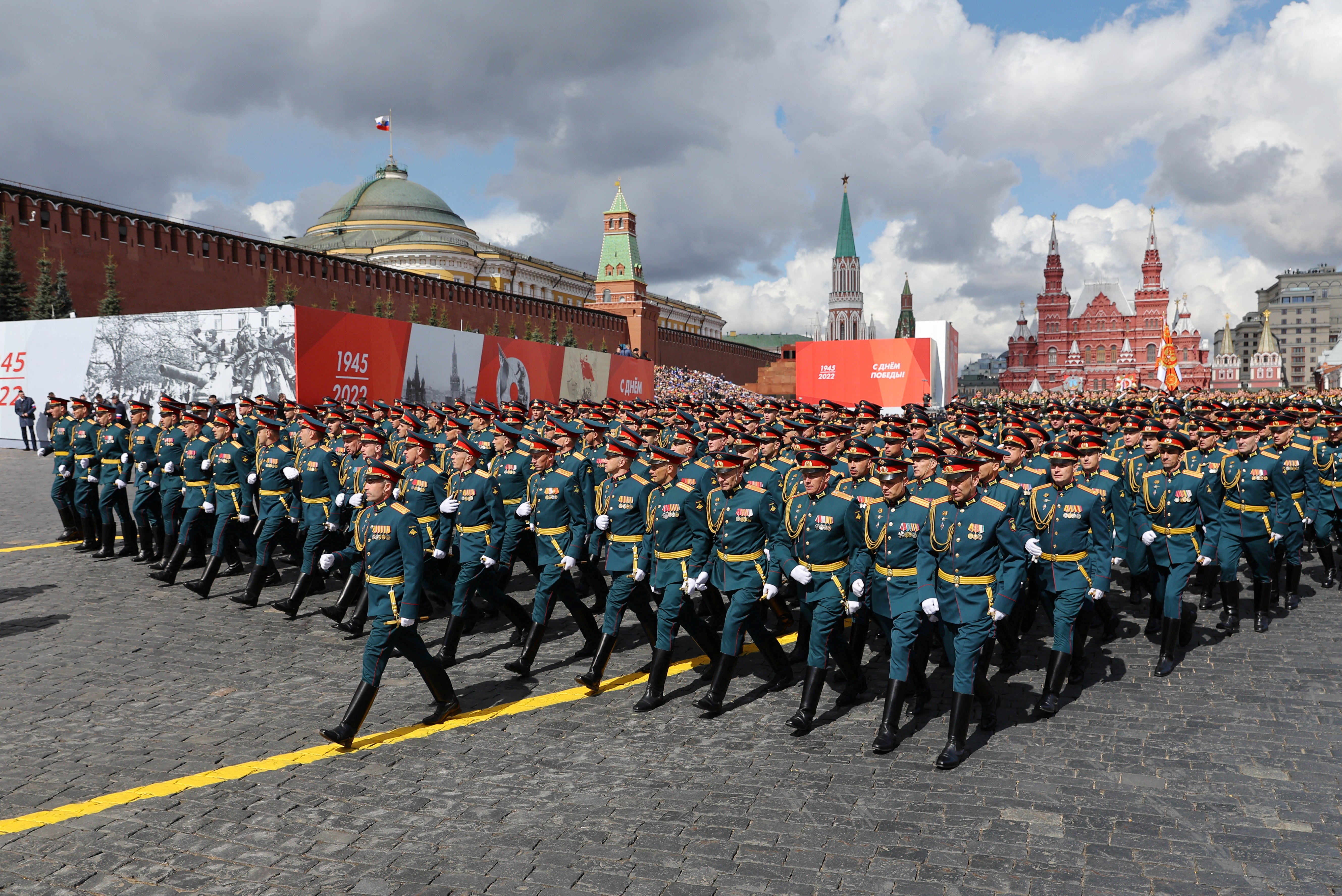
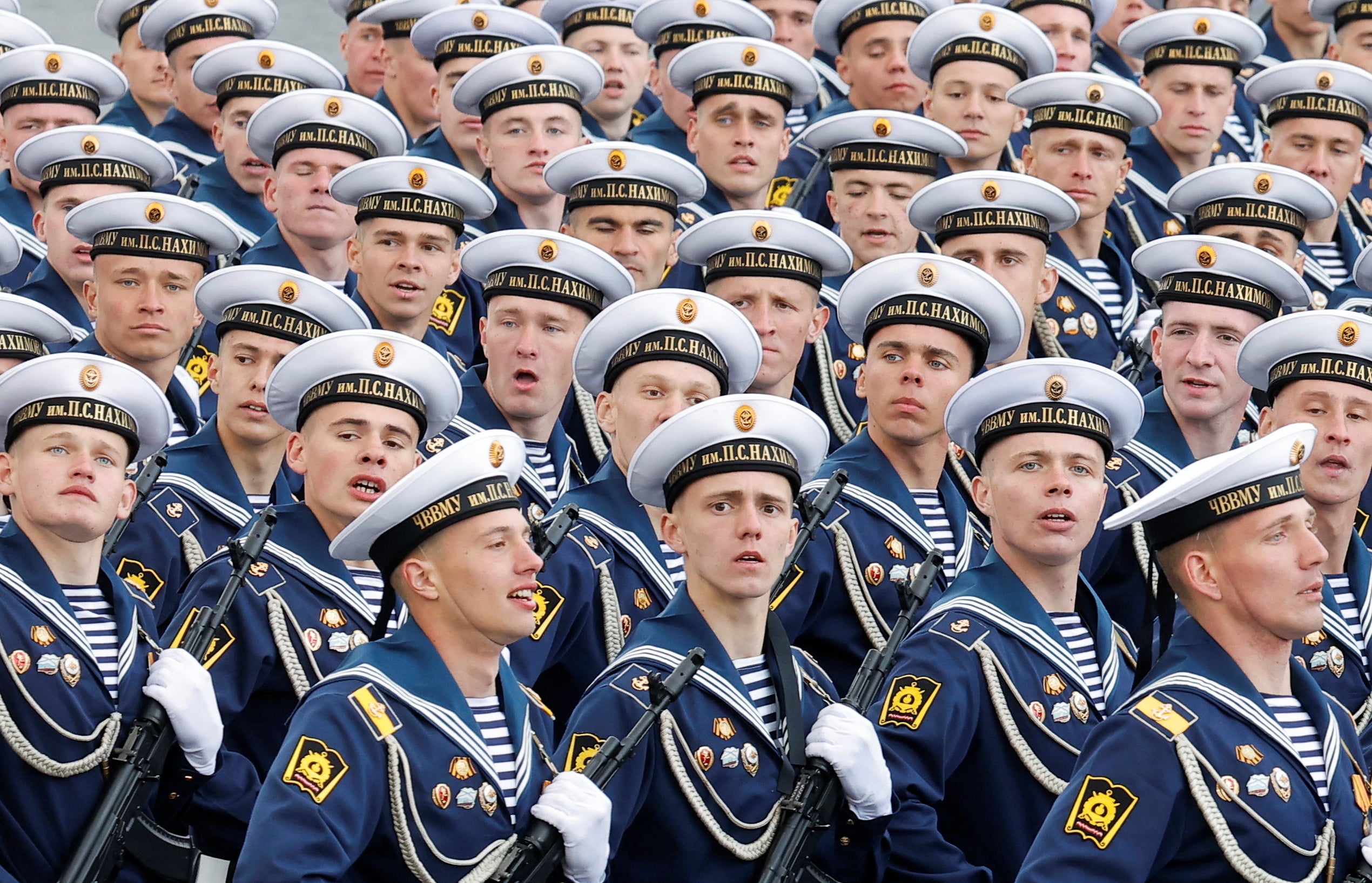
Previously, experts thought the celebration, centered around the grand military parade and flypast, could have been used by the president to proclaim victory in Ukraine.
But, addressing massed ranks of servicemen on Red Square today, Mr Putin devoted his speech to repeating his timeworn justification of the war in Ukraine as a battle against its dangerous “Nazi”-inspired nationalists.
He called on his troops to ensure that there is “no place in the world for executioners, punishers and Nazis.”
What is Victory Day?
The Victory Day military parade is a celebration that pays tribute to the triumph over Nazi Germany in 1945.
This year, 11,000 troops and 131 armoured vehicles took part in the event, including Russia’s Armata tanks, which have not been considered combat-ready for the war in Ukraine, news agencies report.
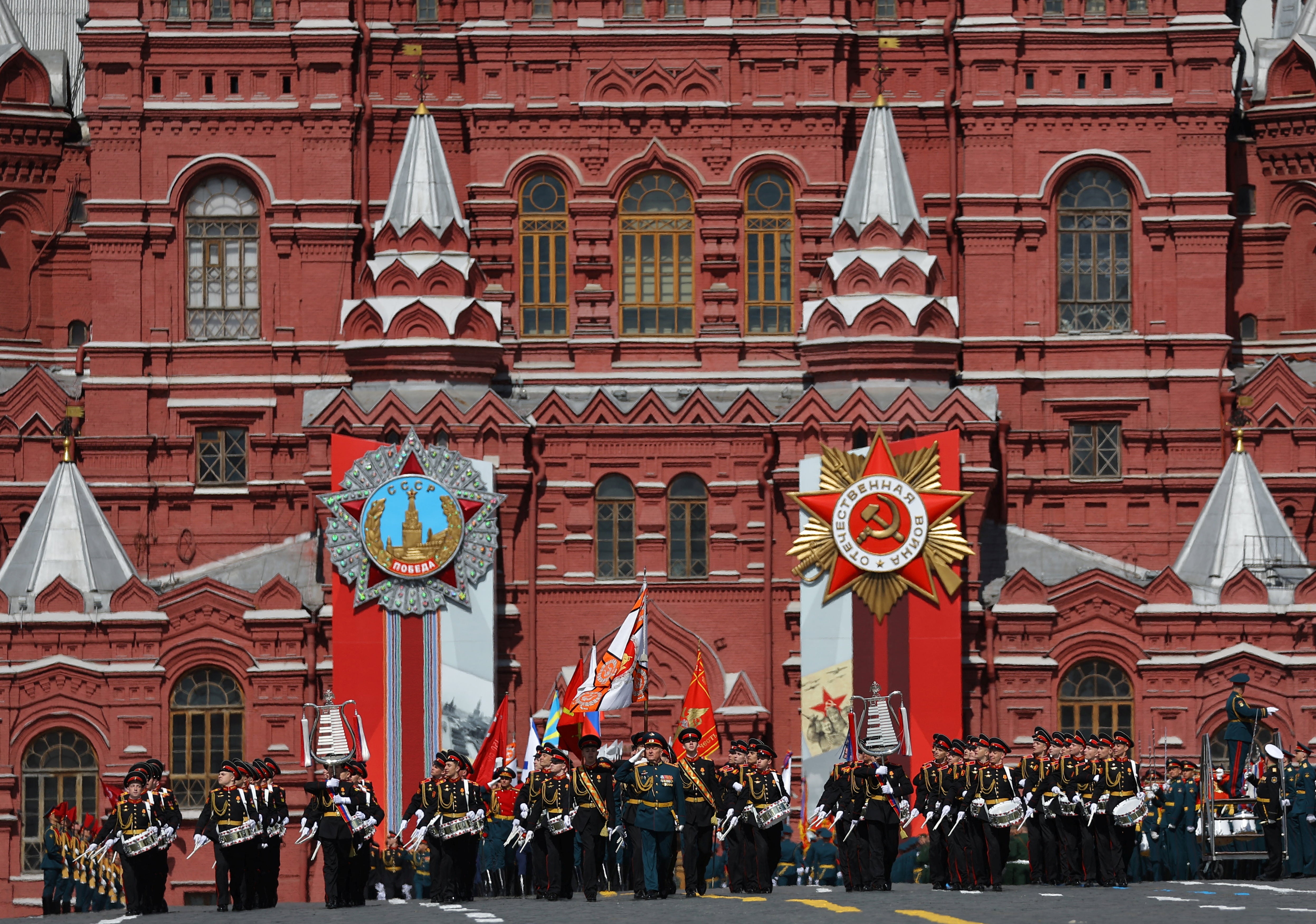
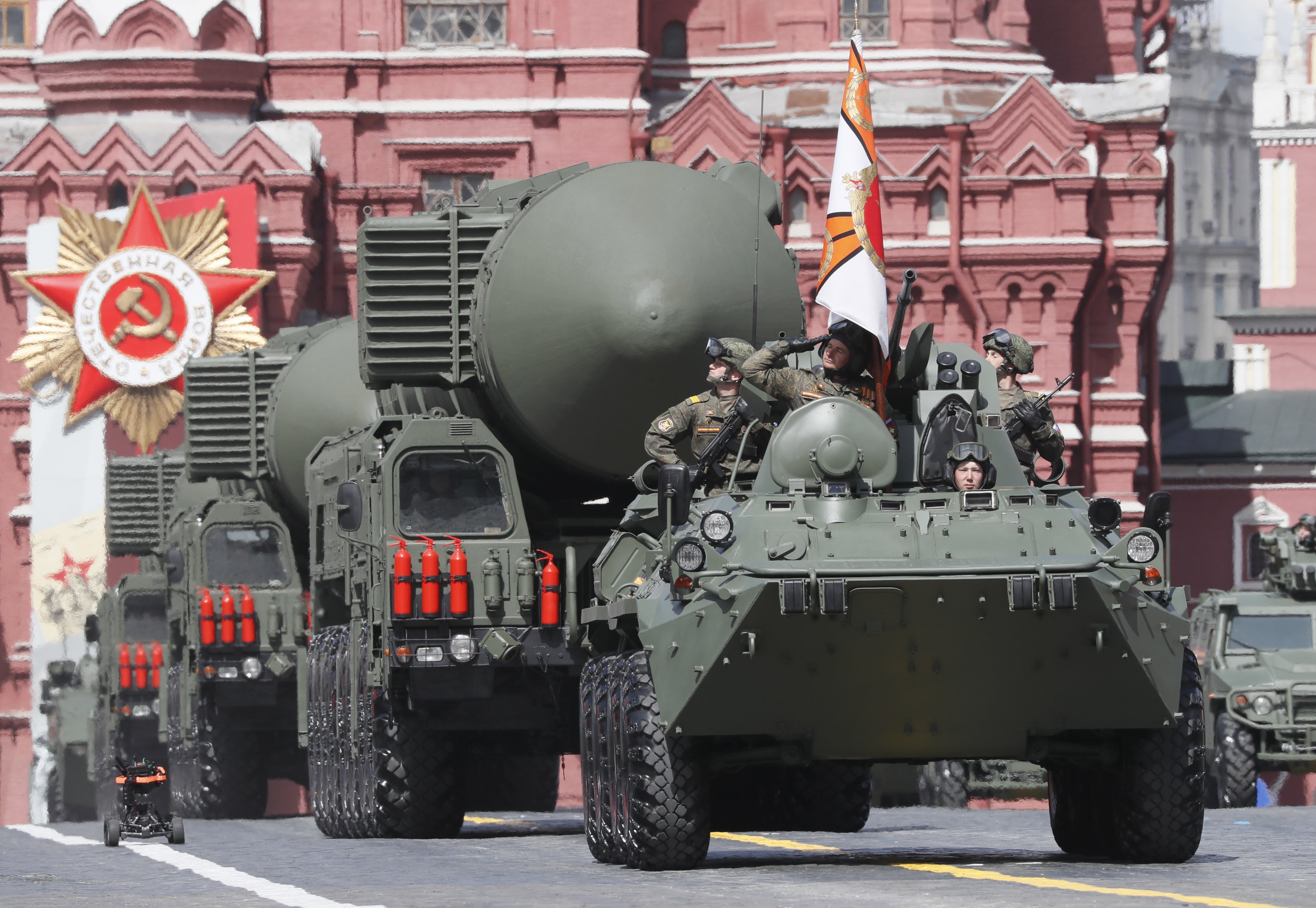
Smaller parades were also planned to mark the day in locations across Russia.
A flypast by Russia’s air force is normally expected alongside the rumbling of military vehicles through central Moscow, but the Kremlin said that this years spectacle had to be cancelled shortly before the parade because of “weather conditions”.
During last Friday’s rehearsal of the event, warplanes had flown over Red Square in a Z-formation, the symbol used by the Russian state during its war in Ukraine.
What is the history of Victory Day?
Victory Day - the Soviet iteration of Victory in Europe Day or ‘VE Day’ - was first inaugurated after the German Instrument of Surrender was signed late in the early hours of 9 May that year.
It commemorates the huge sacrifice made by the USSR - some 27 million Soviets died in the war - to help defeat Nazi Germany.
The 15 Soviet states declared victory early that day after the signing ceremony in Berlin, but the holiday only became a non-working holiday in 1965, and only in certain republics.
The Russian Federation has officially recognised Victory Day since its conception in 1991.
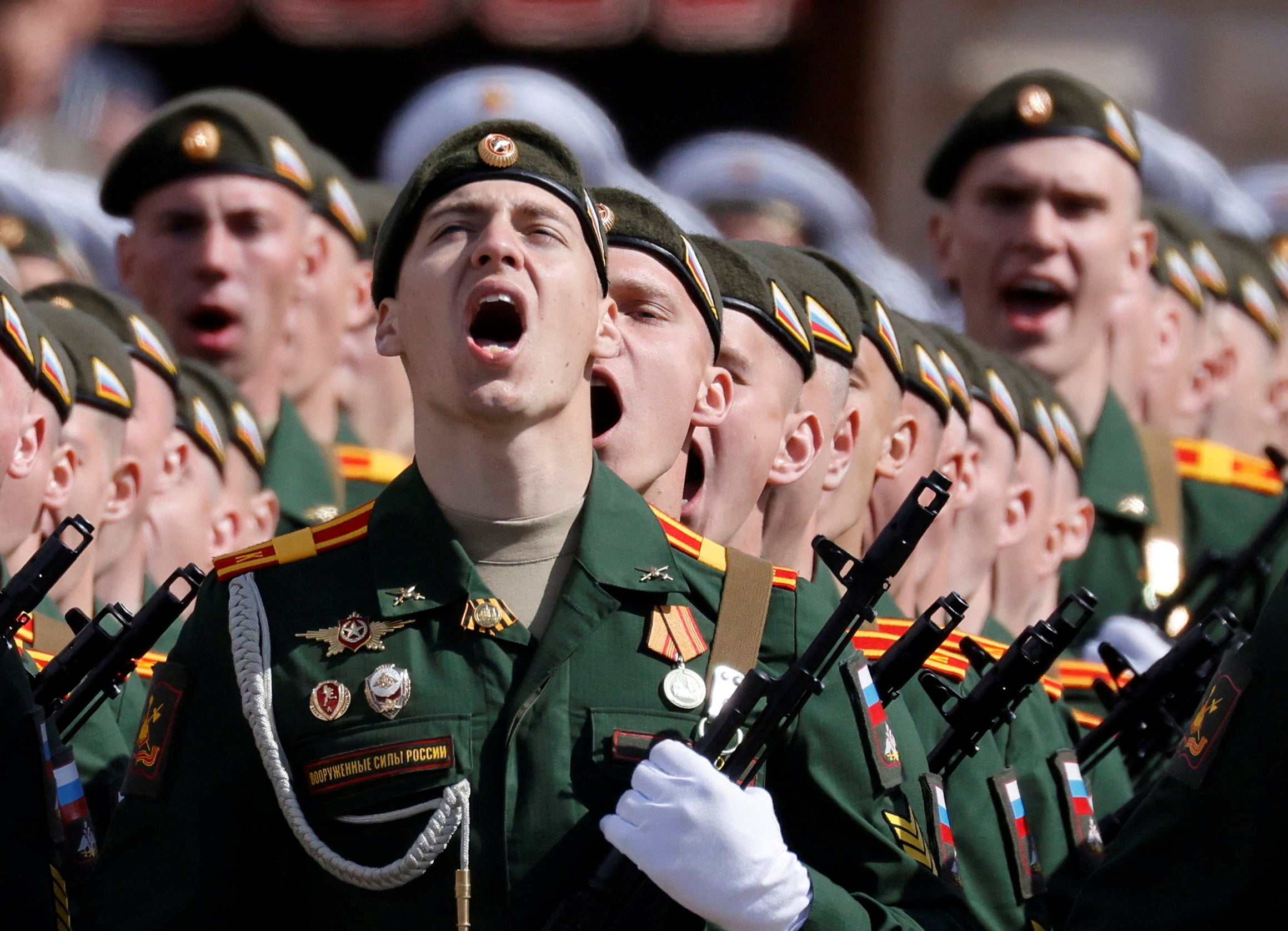
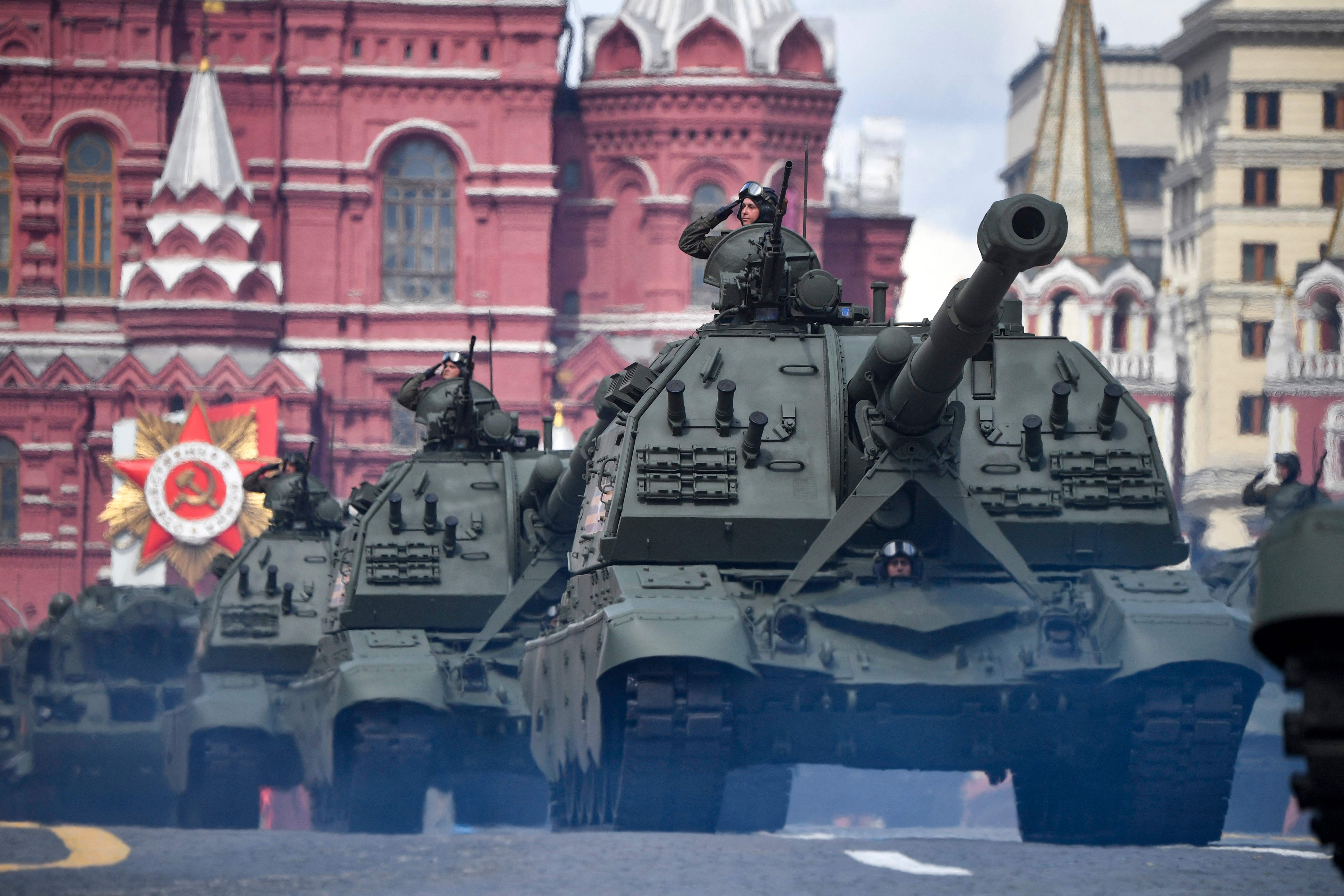
After the dissolution of the Soviet Union between 1988–1991, the grand military parades fell out off fashion in Europe and became instead the preserve of post-Soviet nations, often with large Russian populations.
In 1995, Russia, Kazakhstan, Belarus, and Ukraine held parades for the first time since the formation of the Russian Federation.
Why do America and Europe celebrate on the 8 May and Russia on 9 May?
The US and Europe mark Victory in Europe Day (VE Day) on 8 May - the day that German surrender was accepted by General Eisenhower.
But a separate surrender document and signing cermony was insisted upon by ruling Joseph Stalin, taking place on 9 May (around midnight, Moscow Time).
Explaining the significance of the seperate dates, The Atlantic’s Anne Applebaum tweeted: “Territory controlled at that time by the Western allies went on to become Western Europe, free and prosperous. Territory controlled by the Red Army became the poorer, more repressed Soviet bloc. “Victory” did not mean the same thing in Paris as it did in Warsaw.
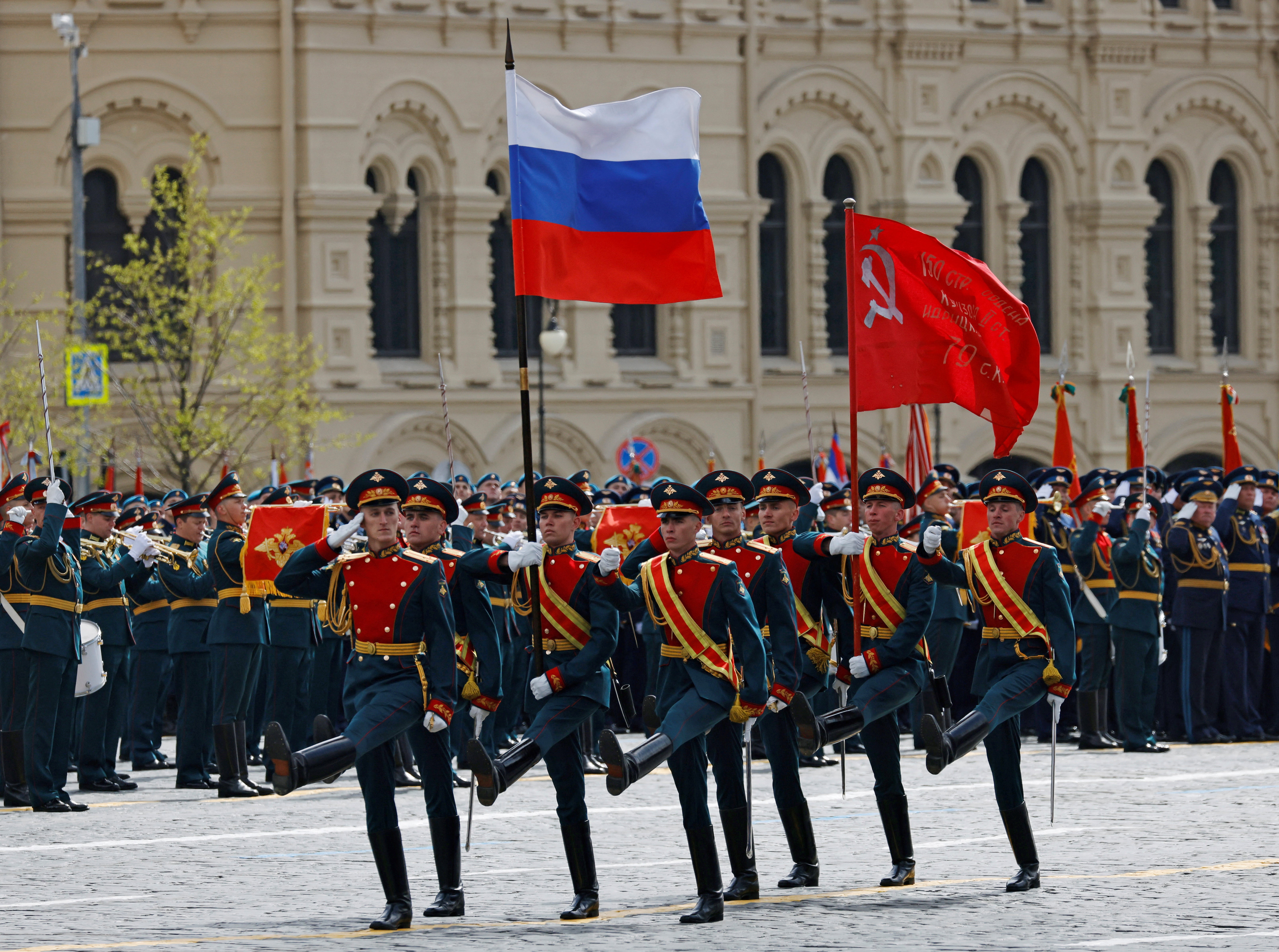
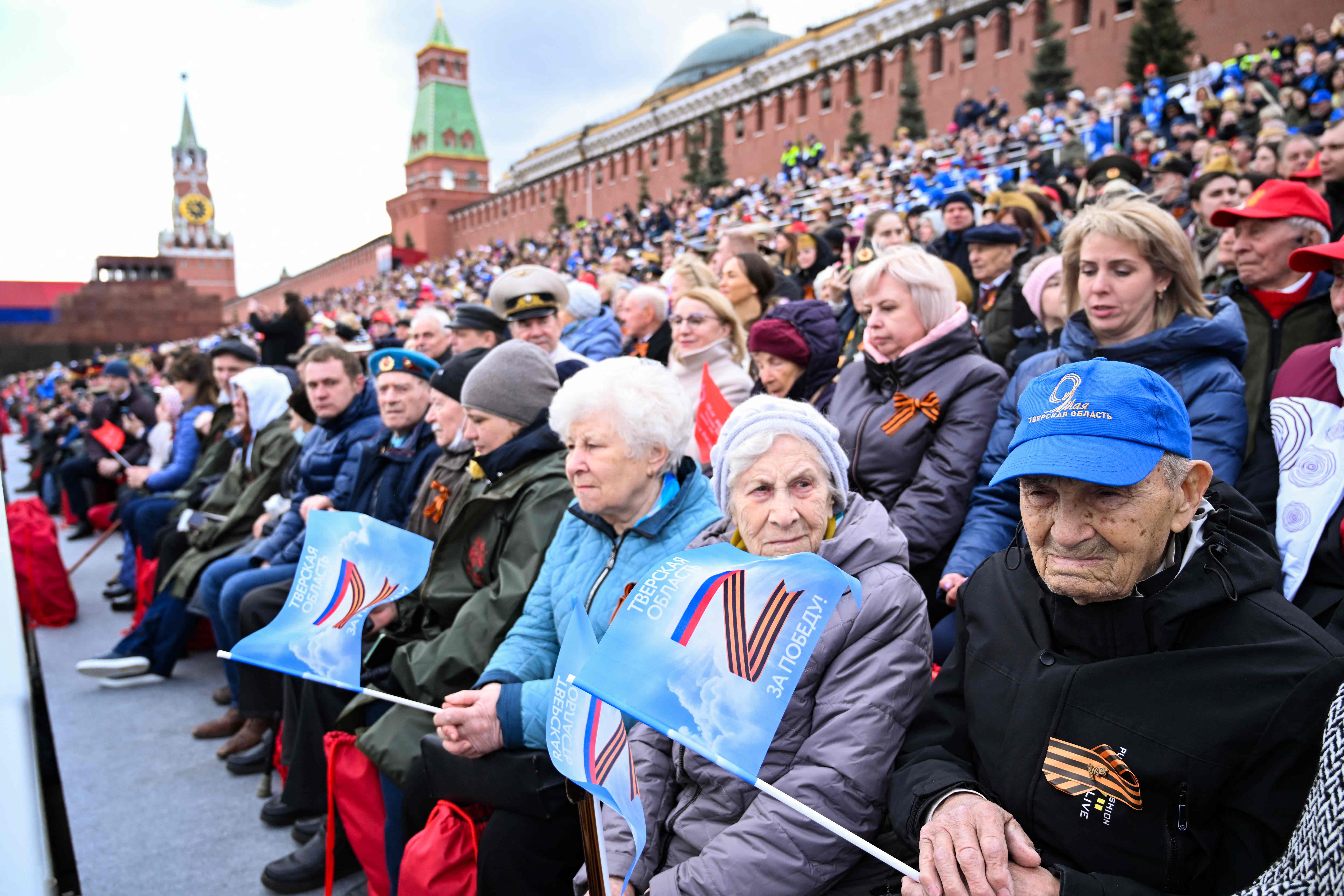
“Red Army occupation meant: The murder of political and intellectuals leaders, the destruction of whatever civil society emerged from the war, the crushing of business and commerce, as well as mass looting and rape. And not only in Germany.
“In that sense, the modern Russian army truly is the inheritor of the Soviet legacy. How appropriate that a Western alliance, this time including many states of the former Soviet bloc, is fighting that legacy once again on this VE Day.”
What did Putin say?
Far from being a grand declaration of his war aims, Vladimir Putin’s speech was instead used to repeat his credence that Russia’s military action in Ukraine is a timely and necessary response to Western policies.
He claimed the West was preparing for an invasion of Russian “lands” and that “enemies” had tried to use “terrorists” against them.
Speaking to massed ranks of servicemen on Red Square, Mr Putin said: “Despite disagreements in international relations, Russia has always advocated the creation of a system of equal and indivisible security, a system that is vital for the entire international community.
“In December last year, we proposed the conclusion of an agreement on security guarantees. Russia called on the West to enter an honest dialogue, in search of reasonable compromise solutions, to take each other’s interests into account. It was all in vain.”
“Nato countries did not want to listen to us, meaning that they in fact had entirely different plans, and we saw this. Openly, preparations were under way for another punitive operation in Donbas, the invasion of our historical lands, including Crimea.
“In Kyiv, they announced the possible acquisition of nuclear weapons, the Nato bloc began actively taking military control of territories adjacent to ours. As such, an absolutely unacceptable threat to us was systematically created, and moreover directly on our borders.
“Everything indicated that a clash with the neo-Nazis, the Banderites [Ukrainian Nazi sympathisers], backed by the United States and their junior partners, was inevitable.”
On Russia’s military losses in Ukraine - a figure allegedly close to 25,900, according to a call intercepted by Kyiv - Mr Putin said the Kremlin has signed a presidential decree to offer “special support to the children of dead and wounded comrades”.
He added: “The death of each one of our soldiers and officers is our shared grief and an irreparable loss for their friends and relatives. The state, regions, companies and public organisations will do everything to care for and help these families.”
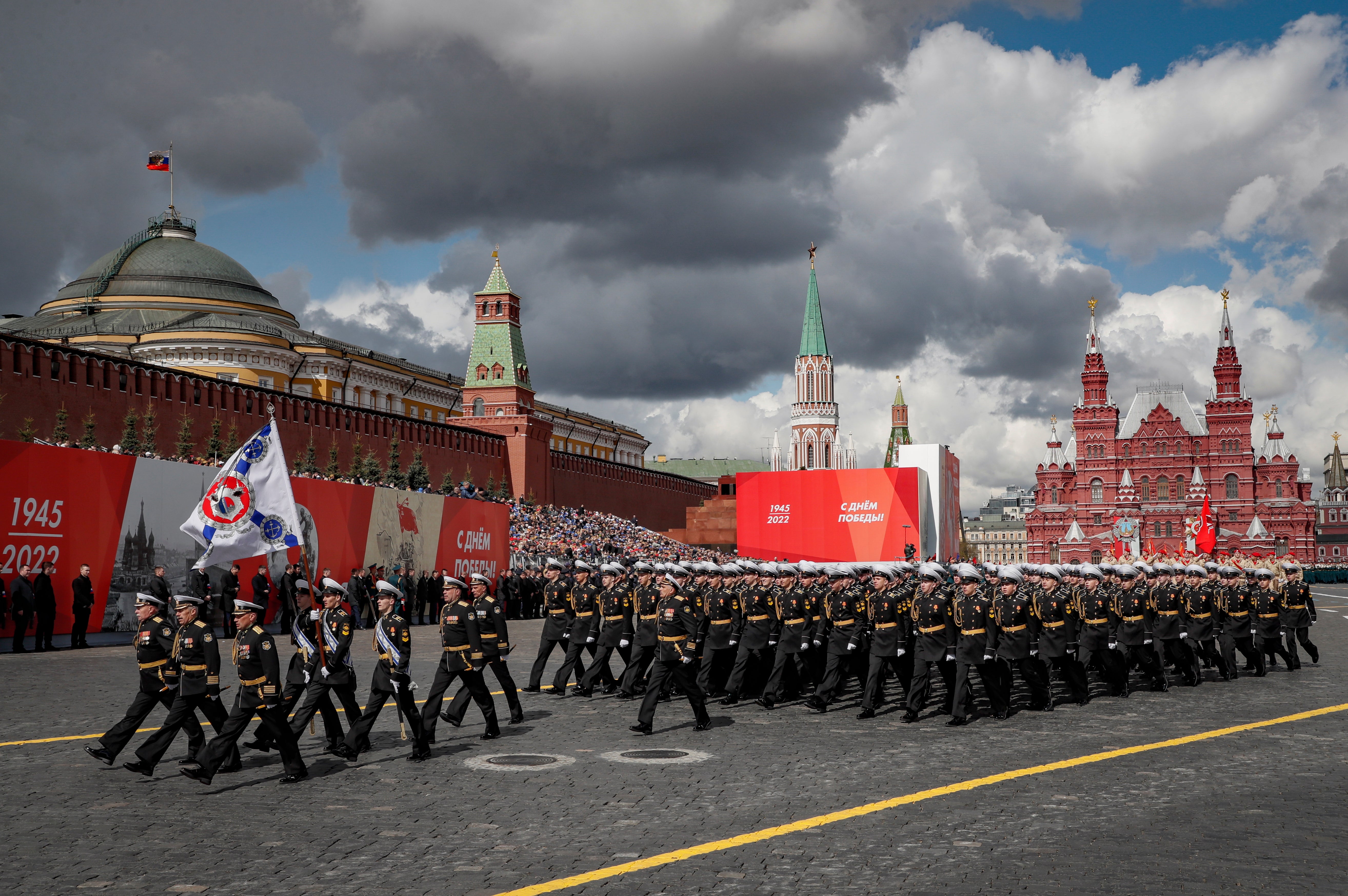
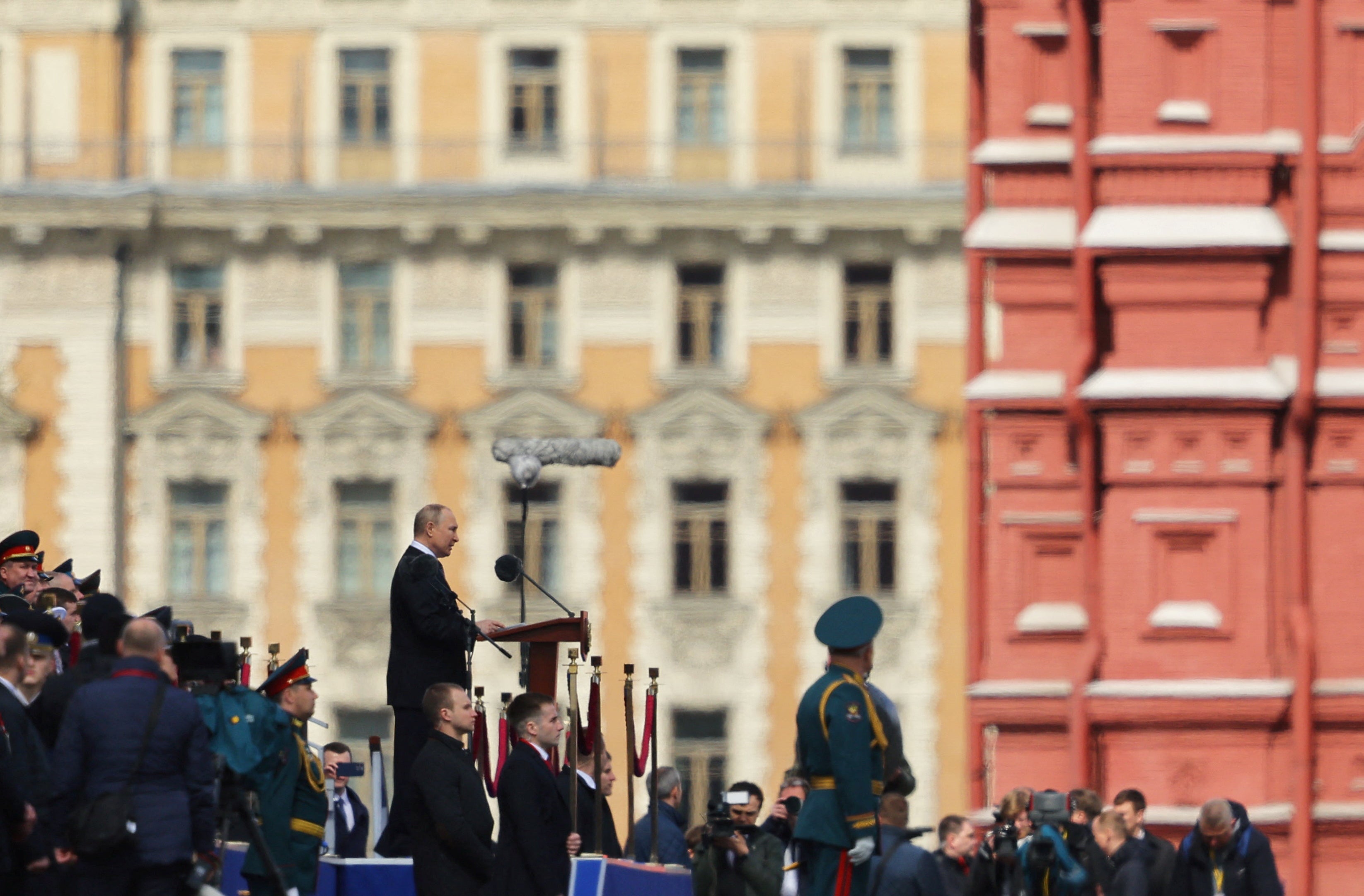
Speaking of Moscow’s fractured relationship with the West, Mr Putin said US veterans had been “practically barred” from attending the parade, but added that he wanted them to know that Russia was “proud” of their exploits and “contribution to the common victory”.
“We are a different country,” he said. “Russia has a different character. We will never abandon our love for the Motherland, our faith and traditional values, the customs of our ancestors and our respect for all peoples and cultures.
“We honour all the soldiers of the allied armies of the Americans, the British, the French, the participants in the Resistance and the partisans of China and all those who defeated Nazism and militarism.”







